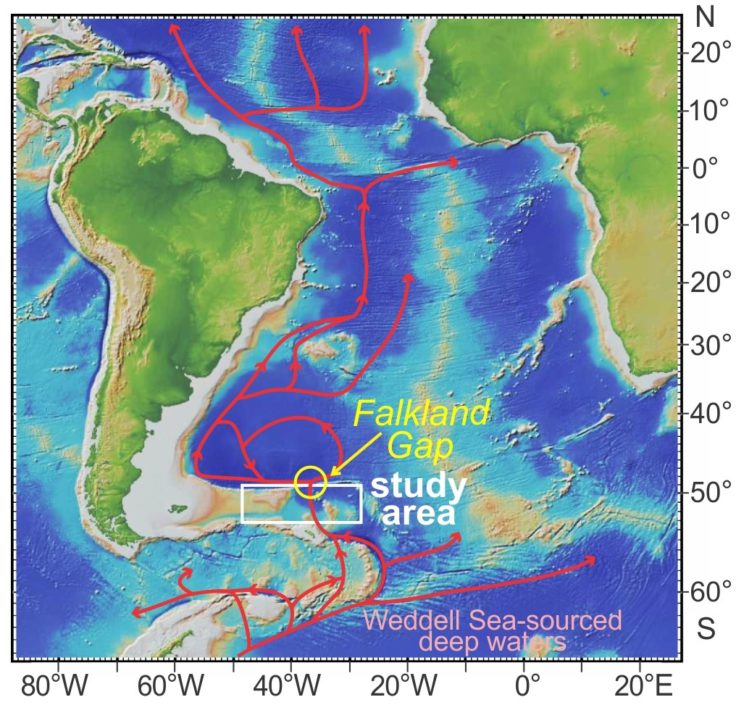Paleogene Climate and Deep-water Evolution in the Southwest Atlantic
Paleogene Climate and Deep-water Evolution in the Southwest Atlantic: Seismic Reflection and Coring Investigations in Support of IODP Proposal 862-Pre
- Start date
- 1 December, 2017
- End date
- 1 December, 2019
This project will tackle the the question of how strongly changes in ocean circulation affect global climate. The study is being carried out in collaboration with Dr Steve Bohaty and Professor Paul Wilson of University of Southampton. Data and samples will be collected on RRS Discovery cruise DY087 in January and February 2018.’

The present-day Southwest Atlantic Ocean is a key region for: (i) the communication of deep waters between the Pacific and Atlantic ocean basins via the Antarctic Circumpolar Current (ACC); and (ii) the dispersal of deep waters produced on the Antarctic margin that fill the deepest parts of the ocean basins. The ACC is the largest oceanic current system on Earth and flows unimpeded clockwise around the Antarctic continent. Across the Drake Passage (a narrow, but deep trough between Antarctica and South America) the average volume transport of the ACC is enormous, estimated at 100 to 150 million cubic meters per second. The ACC is therefore the major conduit for surface and deep-water communication between the Pacific and Atlantic Oceans. Without this connection, global overturning circulation would not be possible, which, in the modern ocean, regulates the global transport of heat, salt, nutrients, and carbon and has a significant influence on global climate across all timescales.
Our proposed project is developed to tackle several fundamental questions concerning the Paleogene time interval (~66 to 23 million years ago) that have frustrated marine geologists and palaeoclimatologists for decades:
When was the ACC initiated?
What was the impact of its establishment on Antarctic climate, on overturning circulation, and global latitudinal heat transport?
Did the development of the ACC serve as the trigger for the initiation of Antarctic glaciation 34 million years ago or was its role completely secondary to that of declining atmospheric carbon dioxide levels?
New insight into these problems can only be gained through new geological studies in key areas, such as the Southwest Atlantic Ocean.
Kelly Hogan
Marine Geophysicist
BAS-Arctic Working Group, Palaeo Environments, Ice Sheets and Climate Change team
Robert Larter
Dep Science Leader of Palaeo Environments IMP 3
BAS-Arctic Working Group, Palaeo Environments, Ice Sheets and Climate Change team